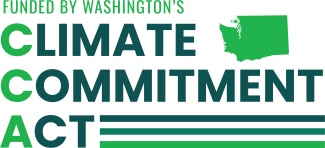Battery Electric Bus Implementation Report (2020)
This report outlines the steps needed to transition to a zero emission bus fleet, which include procuring battery-electric buses, constructing new facilities, setting charging standards, partnering with utilities, and training the workforce to operate and maintain this new vehicle technology. This report was a precursor to the King County Metro Zero Emission Bus Fleet Transition Plan that was finalized in 2022.
Charging Forward: Evaluating Public-Private Partnerships for Electric Bus Base Conversion to Support a Zero-Emission Fleet
The University of Washington (UW) Mobility Innovation Center collaborated with King County Metro to evaluate whether a public-private partnership (P3) model would be beneficial to a zero emission bus base conversion compared to traditional construction delivery methods. The final report includes a P3 decision-making framework and screening tool, a P3 RFP process map, P3 RFP best practices, and an evaluation of KCM’s opportunity to engage in a P3 using the tools developed through the project.
King County Auditor’s Office Bus Electrification Best Practices Review (2020)
This document is a review of best practices for transit bus electrification. This report summarizes key areas that Metro should include in its planning, and county decision-makers should consider as part of oversight of electrification efforts, including: evaluating the impacts of electrification and service expansion/reduction on GHG emissions; tracking and reporting on changes in key inputs and assumptions to assess how they affect the projected cost of electrification; and developing and documenting plans for service, capital project and charging infrastructure, workforce, fuel, and finances.
Metro's report on Feasibility of Achieving a Carbon-Neutral or Zero-Emissions Fleet (2017)
This report responded to Motion 14633, in which the King County Council requested an assessment of the feasibility of achieving either a carbon-neutral or a zero emission Metro vehicle fleet. Several alternatives were evaluated and the assessment considered service needs, costs, necessary supporting systems, environmental results, and social equity benefits. The report ultimately recommended that Metro should transition to a zero-emission bus fleet powered by renewable energy, and focus early deployment of zero-emission buses in the communities that are most vulnerable to air pollution.
Zero-Emission Bus Evaluation Results: King County Metro Battery Electric Buses (2018)
This report summarizes the experience and results from King County Metro’s battery electric bus demonstration which took place from April 2016 through March 2017. FTA collaborated with the U.S. Department of Energy (DOE) and DOE’s National Renewable Energy Laboratory (NREL) to conduct in-service evaluations of advanced technology buses developed under its programs. King County Metro was selected as a participant in this program because the agency was an early leader in testing battery electric buses.
 Translate
Translate




